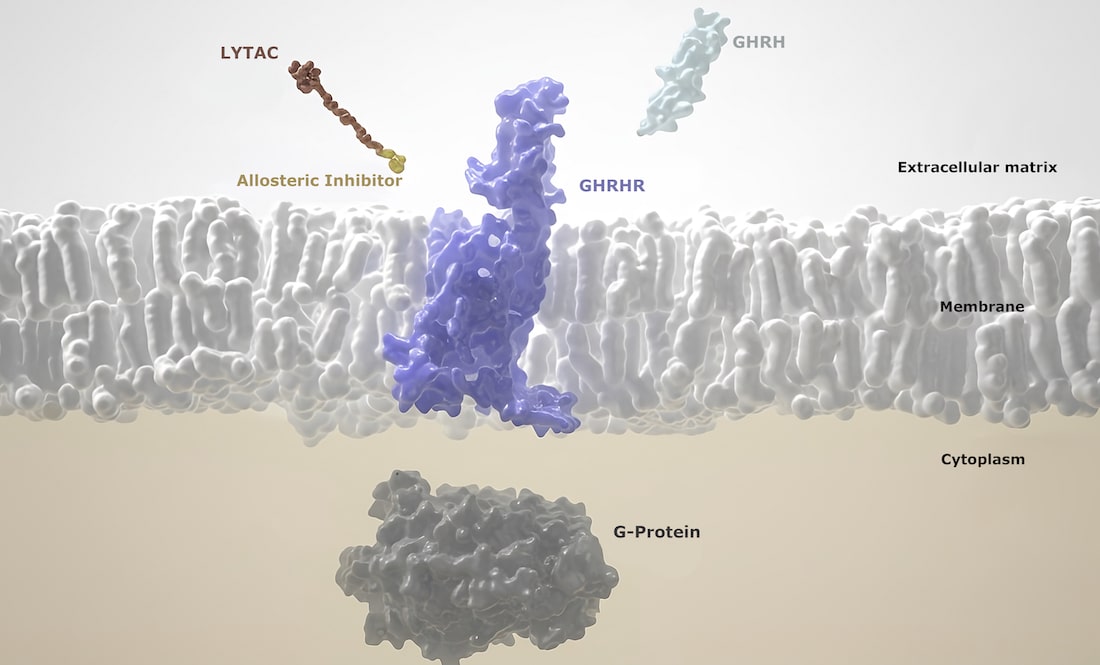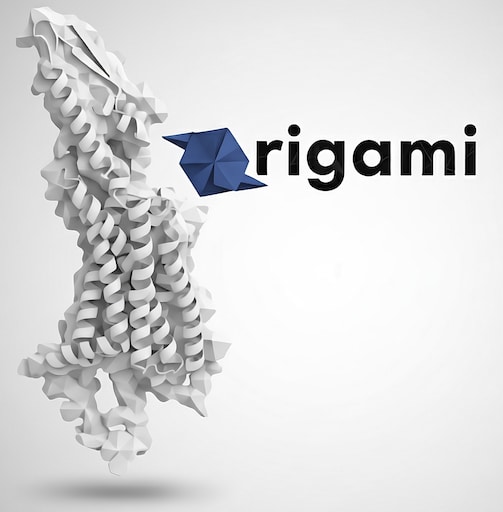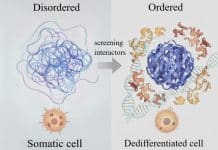 The ORIGAMI project aims to develop innovative cancer therapies, focusing on the membrane receptor GHRHR (Growth Hormone Releasing Hormone Receptor) using novel AI
The ORIGAMI project aims to develop innovative cancer therapies, focusing on the membrane receptor GHRHR (Growth Hormone Releasing Hormone Receptor) using novel AI  approaches. GHRHR belongs to the family of G protein–coupled receptors (GPCRs), which act as molecular sensors: they detect external stimuli and convert them into intracellular signals. Both GHRHR and its variant SV1 have been associated with several cancer types, as they activate mechanisms that promote tumor growth.
approaches. GHRHR belongs to the family of G protein–coupled receptors (GPCRs), which act as molecular sensors: they detect external stimuli and convert them into intracellular signals. Both GHRHR and its variant SV1 have been associated with several cancer types, as they activate mechanisms that promote tumor growth.
The project’s strategy is based on four pillars:
- Computational methods & Molecular Dynamics simulations:
 Mapping the dynamic behavior of GHRHR and identifying potential sites of the receptor that lie away from the main binding site of its natural ligand but can still regulate its function (allosteric sites).
Mapping the dynamic behavior of GHRHR and identifying potential sites of the receptor that lie away from the main binding site of its natural ligand but can still regulate its function (allosteric sites).
- Large-scale virtual screenings & Artificial Intelligence:
Discovery and optimization of small molecules that inactivate the receptor (inhibitors) through machine learning and advanced computational methodologies.
 Chemical synthesis & LYTACs:
Chemical synthesis & LYTACs:
Design of LYTAC molecules (Lysosome-Targeting Chimeras) that bind GHRHR and direct it to lysosomes — the cell’s “recycling centers” — for permanent degradation.
- Experimental validation:
Evaluation of selectivity, efficacy, biophysical properties, signaling pathways (MAPK, cAMP, β-arrestin), and toxicity in cancer cell lines.
Expected Impact:
ORIGAMI will deliver innovative anticancer tools that go beyond the limitations of current drugs. The combination of innovative computational tools with experimental validation establishes a holistic strategy for the development of precision therapies. At the societal level, the prospect of more effective and targeted treatments promises to improve cancer prognosis and patients’ quality of life, while fostering innovation in biomedical research.
Project Τitle: Integrating AI-Driven Drug Design with LYTAC Technology for Cancer Therapeutics
Project Duration: 4 years (5 May 2025 –4 May 2029)
Project URL:
Project Framework & Funding: 3rd Call for H.F.R.I.’s Research Projects to Support Faculty Members & Researchers | 280.000
Scientific coordinator (UNIWA): Minos Matsoukas
Consortium – Partners:
University of West Attica (Lead Organization)
University of Patras
University of Pretoria
National Cancer Institute, Netherlands
Research Publications / Results / Patents: This project started on 5th of May 2025, therefore there are no results or publications available yet.











